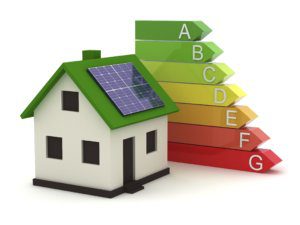
The construction oblivion rules introduced by the Ministry of Regional Development, Building and Housing of Ukraine in 2018 have allowed to accept into service about 9,000 buildings of CC1 class (minor class of consequences).
Deputy Prime Minister, Minister of Regional Development Hennadiy Zubko told a press conference on January 24 that the “construction oblivion” for small houses was one of the main changes in the construction industry in 2018, along with the decentralization of powers of the State Architectural and Construction Inspectorate of Ukraine, the introduction of new state construction standards, reduction in licensing procedures, etc.
As reported earlier, the rules were developed in pursuance of law No. 2363 on amendments to Section V, Clause 9 of the Final Provisions of the law on the regulation of urban development activities to extend the deadline for the commissioning of construction projects built without a permit for construction work adopted by the Verkhovna Rada on March 22, 2018.
The law provides for an indefinite term for the legalization of self-erected facilities belonging to CC1 class. A body of the state architectural and construction inspection agency is obliged to accept the object in operation after a technical survey within 10 days from the date of the application.
The law applies to individual residential buildings, garden cottages, and country houses with a total area of up to 300 square meters, as well as amenity (homestead) buildings and structures with a total area of 300 square meters (built from August 5, 1992 to April 9, 2015) and agricultural buildings and facilities (built before March 12, 2011).

Kyiv City Council on October 18 at second reading passed a decision to set up the rate of a tax on land meant for the construction and maintenance of high-rise buildings at 0.01% of the recognized estimated monetary value of land. The current rate is 1%.
The respective changes are stipulated in Kyiv City Council’s decision on the establishment of local taxes and fees in the city of Kyiv dated June 23, 2011, which was taken as a basis on July 19, 2018.
Leonid Antonenko, a member of the Kyiv Team group of deputies, said that the changes had been introduced to provide reduced rates for multi-apartment building co-owners associations, however, in its current state the adopted norm can be enjoyed by real estate developers as well.
“Real estate developers have been given a gift – a tax on land meant for the construction and maintenance of high-rise buildings that was decreased by a factor of 100! The first decrease from 1% to 0.1% was voted for in July at first reading,” the deputy said in a post on his Facebook page.

Ukraine has started issuing energy efficiency certificates for building with defining the class of energy efficiency after an audit, the press service of the Regional Development, Construction, Housing and Utilities Economy Ministry of Ukraine has reported. “The certificate is a necessary tool for the operation of homeowner associations and the Energy Efficiency Fund,” Regional Development, Construction, Housing and Utilities Economy Minister Hennadiy Zubko said.
According to the press service, the energy efficiency certificate allows assessing the energy efficiency of a building and the effect of the implemented measures, and also contains recommendations on the next steps.
“Today [on September 11] we launch the energy auditors market. We have already signed a memorandum with 21 universities to create commissions for the certification of energy auditors. The second important area for us is to launch jointly with the Ministry of Education the “energy auditor” program of study in higher educational institutions. There is an agreement with [Germany’s] GIZ on conducting additional trainings for certified energy auditors not only in Ukraine, but also abroad,” Zubko added.
He also said that the ministry is waiting for the adoption of the energy efficiency bill that will create tools and regulations for more efficient energy consumption, not only in the private sector, but also in industry, aiming to reduce energy consumption in the transport and energy sectors.